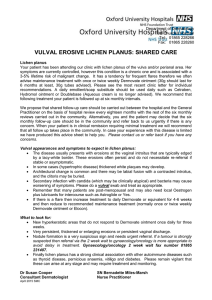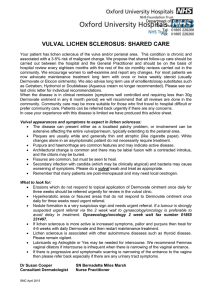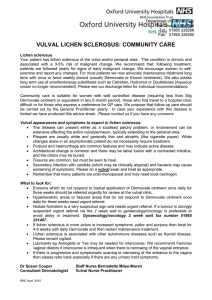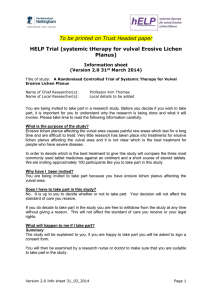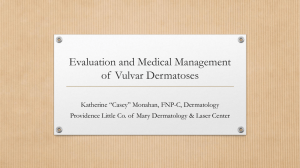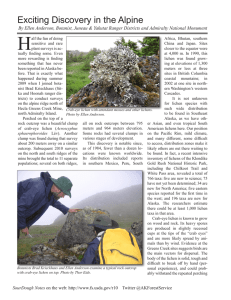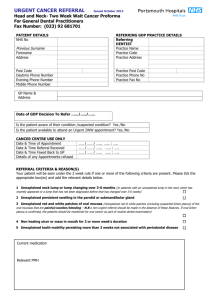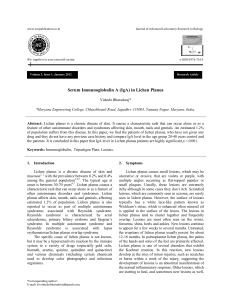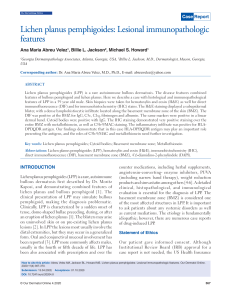VULVAL EROSIVE LICHEN PLANUS: COMMUNITY CARE
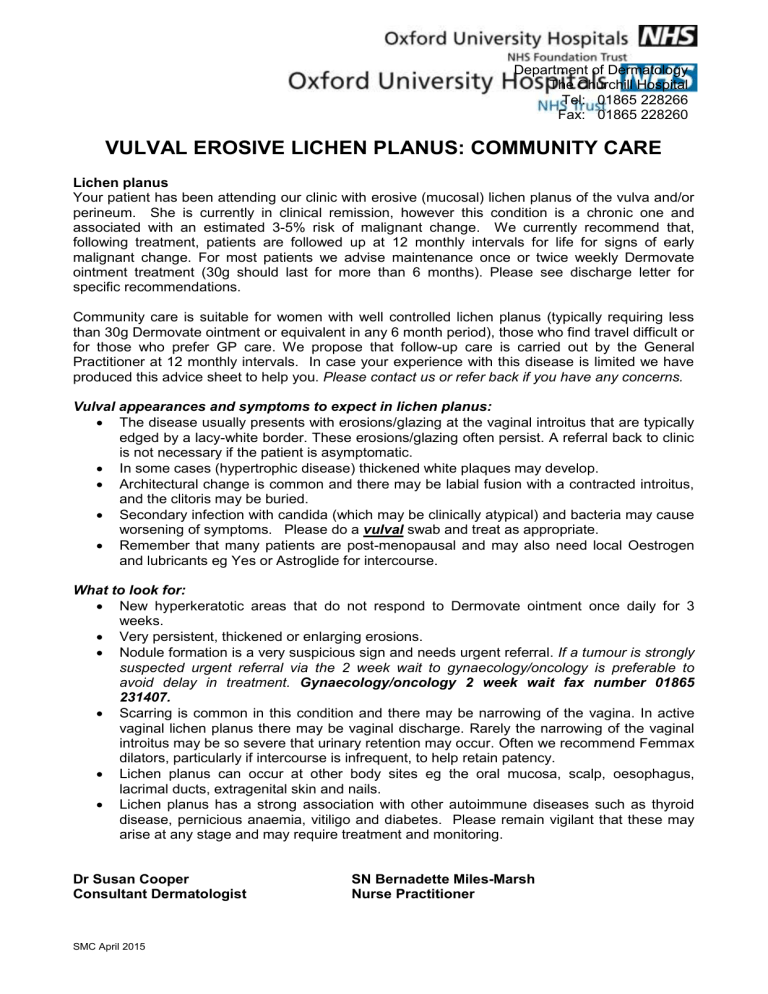
Department of Dermatology
The Churchill Hospital
Tel: 01865 228266
Fax: 01865 228260
VULVAL EROSIVE LICHEN PLANUS: COMMUNITY CARE
Lichen planus
Your patient has been attending our clinic with erosive (mucosal) lichen planus of the vulva and/or perineum. She is currently in clinical remission, however this condition is a chronic one and associated with an estimated 3-5% risk of malignant change. We currently recommend that, following treatment, patients are followed up at 12 monthly intervals for life for signs of early malignant change. For most patients we advise maintenance once or twice weekly Dermovate ointment treatment (30g should last for more than 6 months). Please see discharge letter for specific recommendations.
Community care is suitable for women with well controlled lichen planus (typically requiring less than 30g Dermovate ointment or equivalent in any 6 month period), those who find travel difficult or for those who prefer GP care. We propose that follow-up care is carried out by the General
Practitioner at 12 monthly intervals. In case your experience with this disease is limited we have produced this advice sheet to help you. Please contact us or refer back if you have any concerns.
Vulval appearances and symptoms to expect in lichen planus:
The disease usually presents with erosions/glazing at the vaginal introitus that are typically edged by a lacy-white border. These erosions/glazing often persist. A referral back to clinic is not necessary if the patient is asymptomatic.
In some cases (hypertrophic disease) thickened white plaques may develop.
Architectural change is common and there may be labial fusion with a contracted introitus, and the clitoris may be buried.
Secondary infection with candida (which may be clinically atypical) and bacteria may cause worsening of symptoms. Please do a vulval swab and treat as appropriate.
Remember that many patients are post-menopausal and may also need local Oestrogen and lubricants eg Yes or Astroglide for intercourse.
What to look for:
New hyperkeratotic areas that do not respond to Dermovate ointment once daily for 3 weeks.
Very persistent, thickened or enlarging erosions.
Nodule formation is a very suspicious sign and needs urgent referral.
If a tumour is strongly suspected urgent referral via the 2 week wait to gynaecology/oncology is preferable to avoid delay in treatment. Gynaecology/oncology 2 week wait fax number 01865
231407.
Scarring is common in this condition and there may be narrowing of the vagina. In active vaginal lichen planus there may be vaginal discharge. Rarely the narrowing of the vaginal introitus may be so severe that urinary retention may occur. Often we recommend Femmax dilators, particularly if intercourse is infrequent, to help retain patency.
Lichen planus can occur at other body sites eg the oral mucosa, scalp, oesophagus, lacrimal ducts, extragenital skin and nails.
Lichen planus has a strong association with other autoimmune diseases such as thyroid disease, pernicious anaemia, vitiligo and diabetes. Please remain vigilant that these may arise at any stage and may require treatment and monitoring.
Dr Susan Cooper
Consultant Dermatologist
SN Bernadette Miles-Marsh
Nurse Practitioner
SMC April 2015
